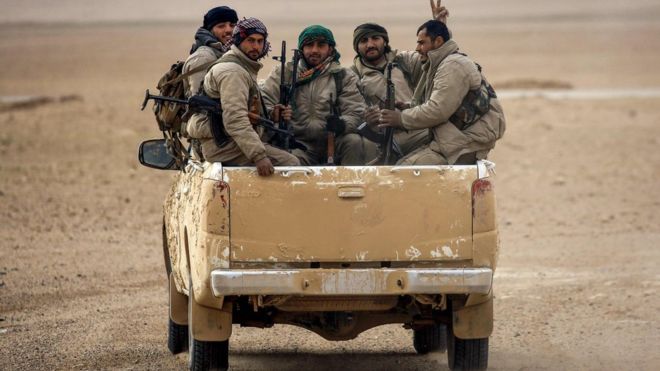 AFP
AFP
Key powers involved in Syria's civil war have criticised the US for helping an allied Kurdish-led militia set up a 30,000-strong "border security force".
Turkey's president vowed to "suffocate" efforts to train the Syrian Democratic Forces (SDF) and create what he called a "terror army".
Turkey considers Kurdish fighters, prominent in the SDF, to be terrorists.
Syria's government decried the "blatant assault" on its sovereignty, and Russia warned it could lead to partition.
With US help, the SDF has captured tens of thousands of square kilometres of territory from Islamic State (IS) militants.
In October, the alliance took full control of the northern city of Raqqa, the de facto capital of the "caliphate" declared by the jihadist group in 2014.
Since then, SDF fighters have been advancing southwards along the eastern side of the Euphrates river valley, clearing the last remaining militants from the desert area.
On Saturday, a spokesman for the US-led multinational coalition against IS confirmed that it was working with the SDF to establish and train a new Syrian Border Security Force (BSF).
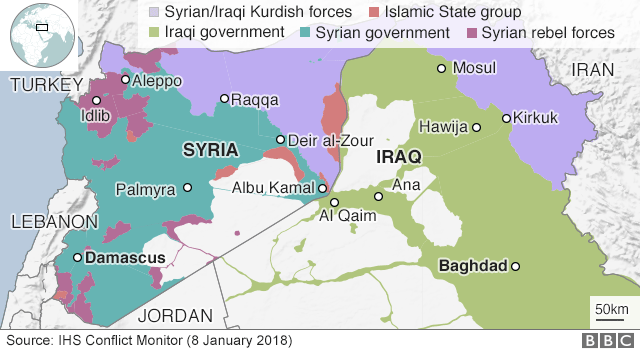
"Currently, there are approximately 230 individuals training in the BSF's inaugural class, with the goal of a final force size of approximately 30,000," Col Thomas Veale told The Defense Post.
About half of the force would be made up of Kurdish and Arab SDF fighters who were no longer involved in the battle against IS, he added. The recruitment of the other half is under way.
The BSF will deploy along sections of Syria's northern border with Turkey under SDF control, as well as the eastern bank of the Euphrates, which effectively serves as the dividing line between the SDF and Syrian pro-government forces.
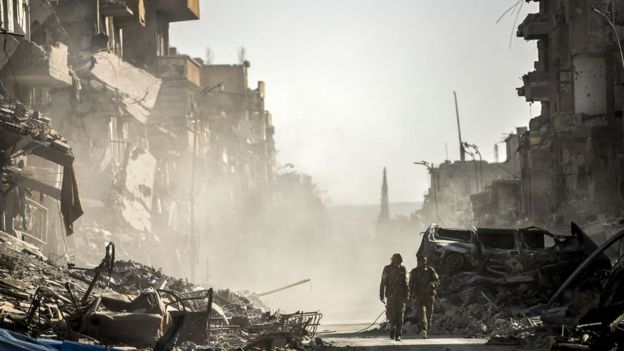 AFP
AFP
On Monday, Turkish President Recep Tayyip Erdogan said the US had acknowledged it was "in the process of creating a terror army on our border" and promised to put an end to it.
"It is for us to suffocate this terror army before it is born," he said.
Mr Erdogan added that preparations were complete for a Turkish military operation against the Kurdish enclave of Afrin in north-western Syria, and that it could be launched at any moment.
Turkey has consistently opposed the coalition's support for the SDF because the force is dominated by the Kurdish People's Protection Units (YPG) militia.
Ankara considers the YPG an extension of the banned Kurdistan Workers' Party (PKK), which has fought for Kurdish autonomy in Turkey for three decades. Washington disagrees and insists the YPG has been vital to the battle against IS.
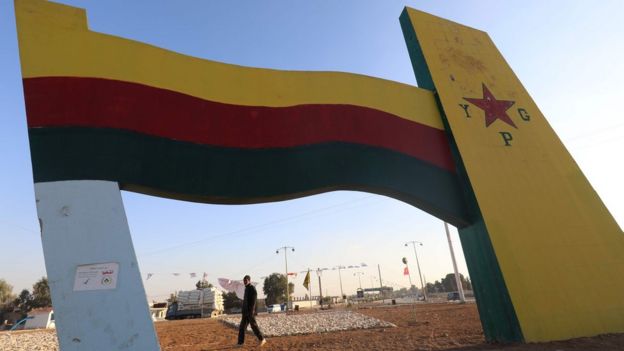 AFP
AFP
Earlier on Monday, the Syrian government called the creation of the SDF border force "a blatant breach of Syria's sovereignty and territorial integrity and a flagrant violation of international law".
"What the American administration has done comes in the context of its destructive policy in the region to fragment countries... and impede any solutions to the crises," an official at the foreign ministry was cited as saying by the Sana news agency.
Russia, which backs the Syrian government, described the US move as a "very serious issue". Foreign Minister Sergei Lavrov told reporters in Moscow he was concerned that "a course has been set for the partition of Syria".
Middle East
Baghdad suicide attack 'kills 35'
- 15 January 2018
- Middle East
Saudi Ritz 'gilded jail' hotel to reopen
- 15 January 2018
- Middle East

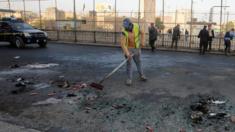
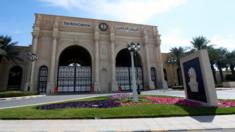
No comments:
Post a Comment